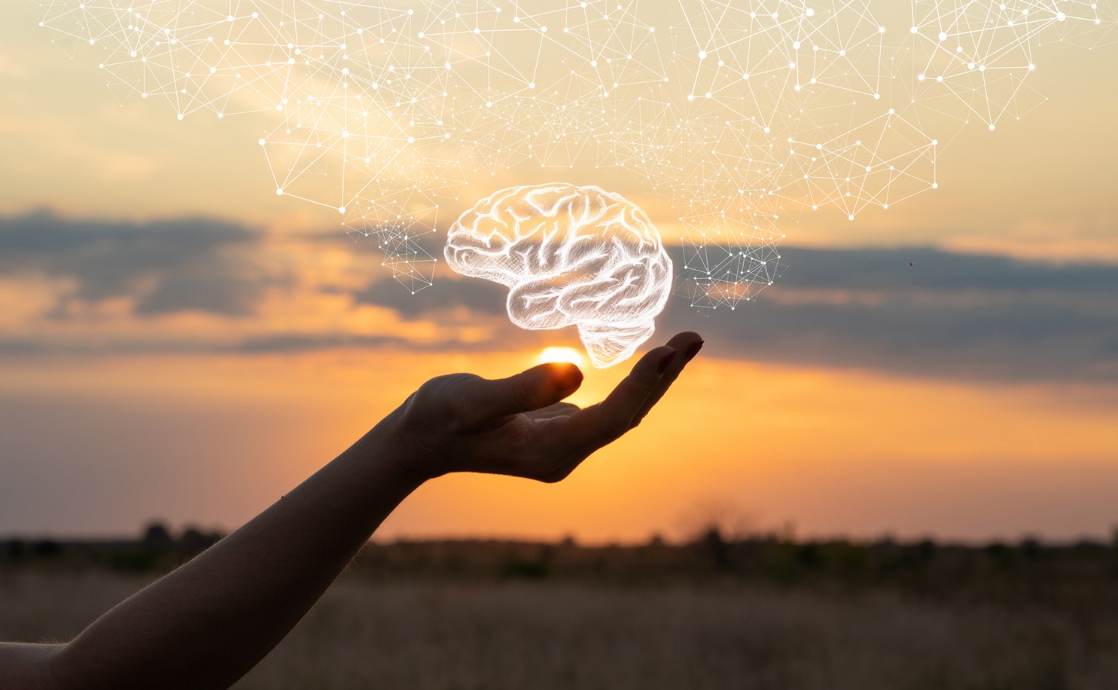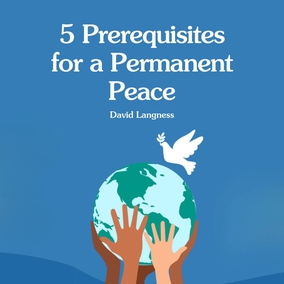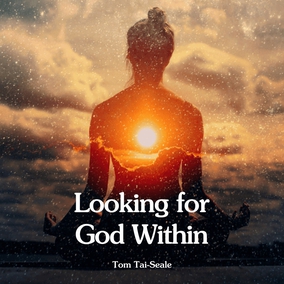The views expressed in our content reflect individual perspectives and do not represent the authoritative views of the Baha'i Faith.
Neuroscience — the study of the human brain, that “three-pound universe” we each possess in our heads — has just begun to understand some of the brain’s manifold mysteries.
When I worked at UCLA’s sprawling medical research campus, I had the privilege of getting to know many of the university’s preeminent medical researchers and their teams. I spent time in their laboratories, looked through their electron microscopes and read early drafts of their research studies. In one of my favorite labs, neuroscience, I learned a great deal about the human brain. In the neuroscience lab, I saw brain scans lit up with colors matched to emotions, in research meant to locate a “moral module.”
They were trying to answer these questions: where in the brain do we keep our moral reasoning? What part of the brain decides between right and wrong? Can we physically locate the conscience?
RELATED: The 7 Stages of the Human Conscience
We know that people who suffer traumatic brain injury sometimes undergo changes in their previous moral guidelines as a result of the injury. They can lose their inhibitions and the behavior control they used to have, resulting in a radically different personality. Does this mean that our moral decisions take place in a certain part of the brain, somewhere specific we could locate in a CAT scan?

After investigating the injured areas in TBI patients and those same areas in healthy ones, the neuroscientists I worked with said no. They learned, in their research, that the brain’s neural network responsible for moral decisions — the human conscience — is “domain-global.” This means, at least as far as modern science can currently determine, that we have no “moral module” or specific, identifiable area of the brain responsible for conscience-driven decision making.
Instead, they found the neural network that makes moral decisions actually overlaps and connects with several other important brain functions. It cross-connects with the network that determines the intentions of others; with the network that attempts to understand other people’s emotional states; and with the network that prompts us to feel empathy for others, as well. All of those widely-dispersed networks “light up” in brain scans when moral and conscience-driven decisions get made. Determining feelings and emotions, in ourselves and others, links closely to our moral reasoning through a multitude of functions in every portion of the brain.
RELATED: The Bridge Between the Material and Spiritual Worlds
The natural scientific conclusion? Moral reasoning and the high-order abstract decisions we make from our conscience relates to our ability to see things from another person’s point of view, understand their emotional state and have empathy for them — all at the same time. This sophisticated, uniquely human and domain-global ability sets us apart from every other creature.
The conscience, then, may even transcend the confines of the brain, and extend to the heart and the soul, acting as a universal instrument of perception, understanding and moral choice. The Baha’i teachings seem to indicate that the human conscience has its closest connection with the spiritual rather than the physical, as alluded to in Abdu’l-Baha’s description from A Traveller’s Narrative of the Baha’is themselves:
The fulcrum of their motion and rest and the pivot of their cast and conduct is restricted to spiritual things and confined to matters of conscience; it has nothing to do with the affairs of government nor any concern with the powers of the throne; its principles are the withdrawal of veils, the verification of signs, the education of souls, the reformation of characters, the purification of hearts, and illumination with the gleams of enlightenment. – p. 85.
This mystical idea, that the mind and the conscience and the soul all enlighten us and connect us with the numinous kingdom of the spirit, runs throughout the Baha’i teachings:
Where then can one find in man this mind that resides in him and whose existence is beyond doubt?
Were you to examine the human body with the eye, the ear, or the other senses, you would fail to find it, even though it clearly exists. The mind, therefore, has no place, although it is connected with the brain. So it is with the Kingdom. Likewise, love has no place, but it is connected with the heart. And in the same way, the Kingdom has no place, but it is connected with the human reality. – Abdu’l-Baha, Some Answered Questions, newly revised edition, p. 281.
So the soul, the intellect, the mind and the conscience — all abstractions —tell us that our moral, intellectual and spiritual lives don’t depend entirely on the physical brain. Instead, the brain functions, as one neuroscientist told me, like a very sensitive receiver, like a gigantic dish antenna pointed out into the spiritual universe, designed to pick up the faintest signals and amplify them so we can understand them.
If you’re trying to locate your spirit or your conscience, look for it inside your spiritual reality — thoughts, your hopes, your prayers and your meditative mind.
You May Also Like
Comments

















Thank you for these reflections. They certainly have helped to clarify for me a very abstruse subject--conscience. However, as in all mysteries that science and religion attempt to solve, with this question of consciousness and the brain, we encounter a paradox. The brain is indeed located in in space,--the three pound universe inside our skull--and yet the mind, soul and spirit that are connected with the brain do not themselves occupy space. The metaphor of the dish antenna is a good one. Like the brain, it receives the wave-like energies come from space, just as ...the brain receives the energies that come from the intellect or the soul. So they (soul, mind, spirit, intellect) interact with the antenna (brain) without being identical to it. The brain is a transmitter, if you like, that does not itself originate the complete source of its transmissions. Consciousness is the result of the interaction between matter and spirit--at least as long as we are living in this world.